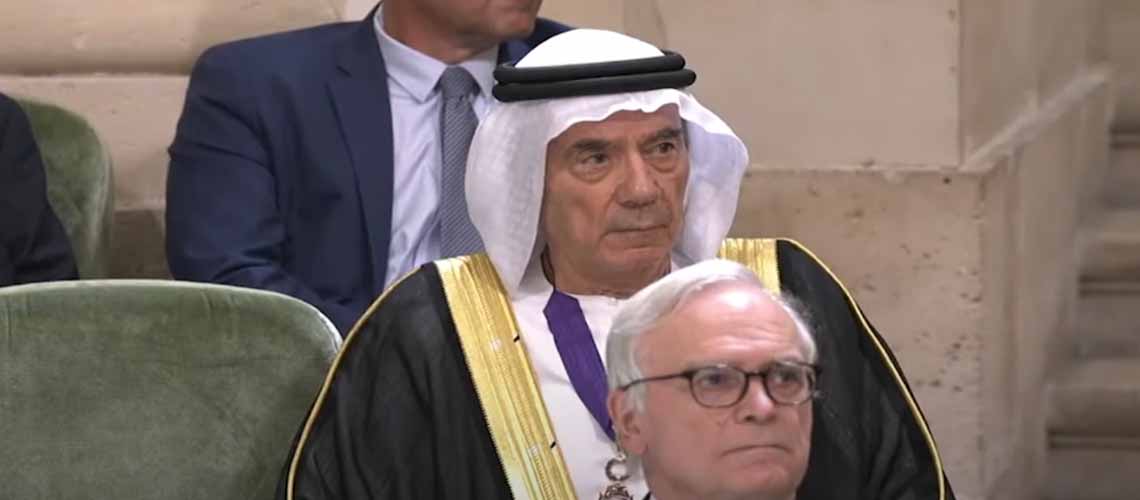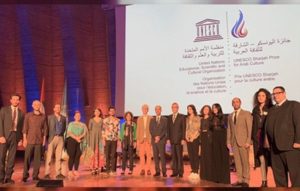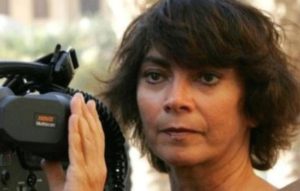Zaki Nusseibeh, Cultural Adviser to the UAE President and Chancellor of the United Arab Emirates University, has become the first Emirati to join as an Associate Foreign Member of L’Académie des sciences morales et politiques (the Academy of Moral and Political Sciences) in a ceremony held under the Cupola of the Institut de France in Paris.
The Institut de France is a premier learned society created in 1795 and comprises five Académies, of which L’Académie des Sciences Morales and Politiques is the youngest.
L’Académie des Sciences Morales and Politiques occupies an unparalleled place in the French intellectual landscape. Dedicated to the study of man, his life in society and his relationship to the world, it promotes dialogue between the academic disciplines of the human sciences (philosophy, psychology, sociology, law, economics, politics, history, and geography) to shed light on issues and challenges of the present time.
Nusseibeh’s election to the Académie is a tribute to his long government service, during which he has enriched UAE’s cultural and education foundations and served foreign affairs, in particular developing close bonds between the UAE, the global Francophonie, and prestigious cultural and educational institutions of France.
The Installation Ceremony was presided over by the President of the Académie, Professor Emeritus of Arabic and religious philosophy, Rémi Brague. Professor Brague specialises in Islamic, Jewish, and Christian thought of the Middle Ages.
Nusseibeh was presented by the Perpetual Secretary of the Académie, the internationally renown geographer Professor Jean-Robert Pitte.
Professor Pitte presented the UAE official as “a citizen of the world, a representative of an Orient open to all cultures, and a peacemaker, a mission inscribed in the genes of his family for nearly fourteen centuries”. He said that Nusseibeh is “a man of exquisite delicacy and a most pleasant manner, full of humour and empathy.”
Pitte paid tribute to the cultural influence of the UAE and its recent rapprochement with Israel, in which he sees hope for progress in peace and inter-religious dialogue.
He noted that Nusseibeh is the author of numerous publications devoted to cultural diplomacy, the fight against extremism, and the pursuit of tolerance.
Professor Pitte read a salutation written in honour of Minister Nusseibeh by a fellow Foreign Associate Member, Prince Hassan bin Talal of Jordan. Prince Hassan’s message said that Zaki contributed to the development of culture, arts and diplomacy in the UAE, as well as to the development of certain major cultural and artistic initiatives in Abu Dhabi.
Through the installation of Zaki, L’Académie des Sciences Morales and Politiques continues to build cultural bridges between France and the Arab world and to strengthen intercultural dialogue between like-minded people, he noted.
Following the announcement, Zaki Nusseibeh addressed the assembled audience of Académiciens and invited guests. He attributed his election to the milieu of the UAE, “the country that it has been my honour, blessing, and good fortune to serve for the majority of my career”.
He said, “There is great historical meaning in the election to the Académie of its first member from the Arabian Gulf region and, moreover, that the honour and responsibility is granted to me as a UAE citizen. Indeed, I conclude a necessary connection between my own professional and intellectual growth and my life’s milieu. Therefore, the distinction of my election belongs not to me. It is rather testament to the values, aspirations, and capacities of the UAE and the inspirational individuals I have encountered there.”
Nusseibeh used his address to describe the hallmarks of the UAE’s development and what he believes has been central to its successful development as a nation.
He said, “The UAE is a country rooted in the true heritage of Islam, thus prioritising the dignity of human life. The UAE’s national vision and strategies resonate with the pursuit of tolerance, empathy, and compassion. They express the forcefully and fundamentally humanitarian values that reflect its Islamic teachings. Its leadership and governance are devoted to ensuring each of its residents has equal access to the security, resources, and opportunity necessary for a healthy, safe, and purposeful life.
“Furthermore, the UAE’s horizons have always expanded beyond its shores to promote international openness, cooperation, and charity. This worldview recognises that our national welfare is interdependent with global wellbeing. Above all, the nation advocates peaceful coexistence both within the diverse, multicultural communities housed in its territories, and between countries and peoples of the world.”
The UAE minister added, “Today, the UAE provides the model of human development for the Arab region. Today, the domestic policies of the UAE, our dealings with Arab and Islamic states, and our wider commitments to the international institutions of global governance continue the humanitarian methodology of the nation’s first president. Our present wise leadership recognises that it is crucial to a nation’s resilience and stability to develop human capacity, to prioritise human wellbeing, and to promote and implement a humanist ethos.”
Concluding his address, Nusseibeh spoke of his hopes for his future as a lifelong elected Foreign Associate member of the Académie.
As Foreign Associate Member, Zaki Nusseibeh takes his place alongside Pope Emeritus, Cardinal Joseph Ratzinger; King Emeritus, Juan Carlos of Spain; Prince Charles, Prince of Wales, and Duke of Cornwall; Prince Hassan bin Talal of Jordan; Stephen Breyer, Associate Justice of the Supreme Court of the United States; Jean-Claude Junker, former Prime Minister of Luxembourg, and former President of the European Commission; Mario Monti, former European Commissioner, former Prime Minister of Italy, and long-serving President of Bocconi University in Milan; Wolfgang Schäuble, former President of the federal parliament of Germany; Dora Bakoyannis, former and first female Mayor of Athens and former Minister of Foreign Affairs and Minister of Culture for the Hellenic Republic; and Ismaïl Kadaré, Albanian novelist, poet, essayist, screenwriter, and playwright.




